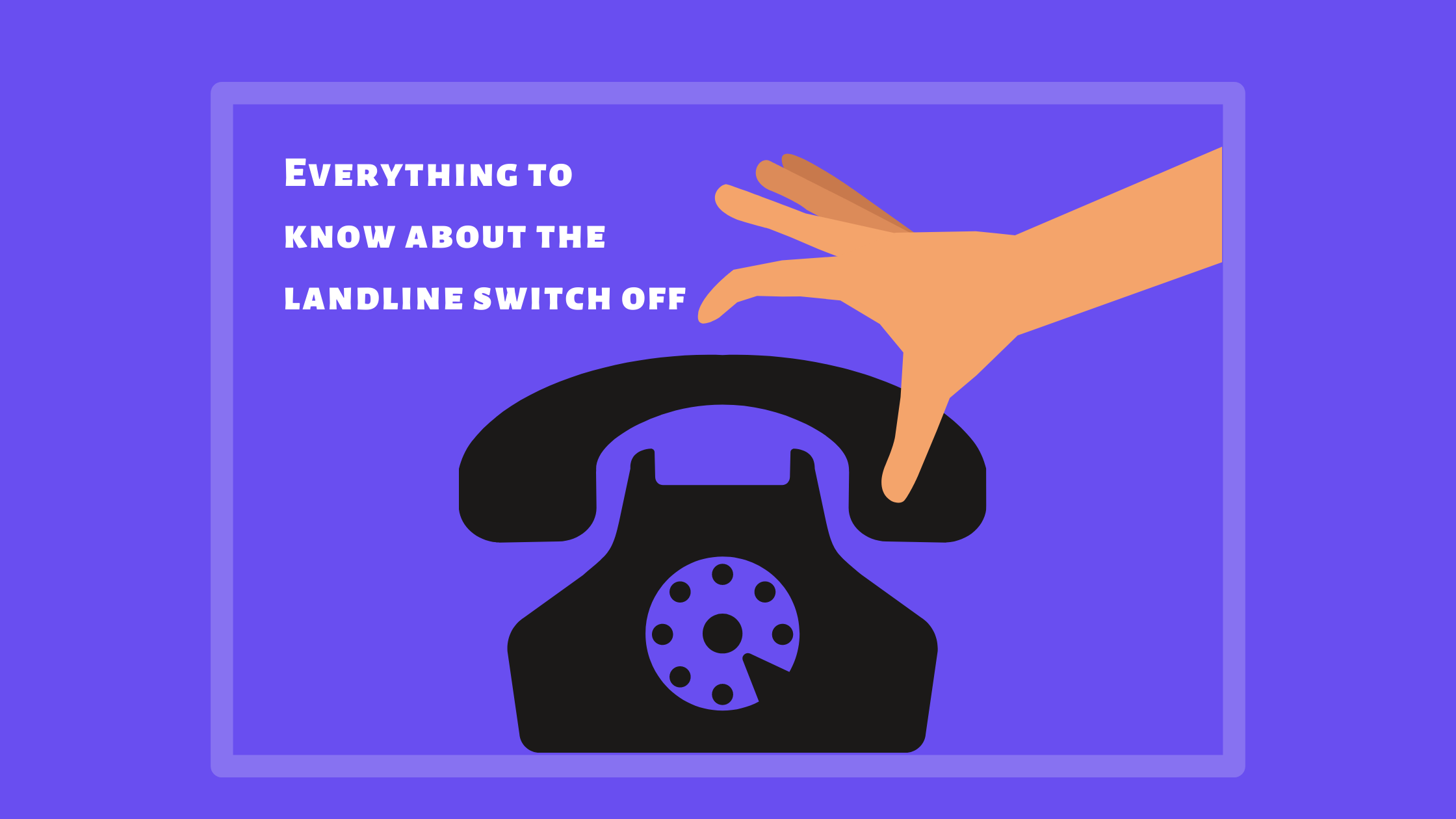
Have you heard? A major change in telecoms is coming – landline phones are to be switched off by 2025 in favour of digital networks more fit for the modern era. Eventually all home and business phones will need to be replaced. So if you’re still relying on traditional phone equipment, start exploring your options now with everything you need to know about the landline switch off in this guide.
Switching to digital phone solutions early will be especially important for small businesses, freelancers and startups. These entities can’t afford downtimes without communications. So if you leave the planning too late, you could find yourself overpaying for unsuitable options in order to meet the deadline.
However, the approaching switch off presents a great opportunity for smaller sized firms to upgrade to technologies which previously may have only been practical or affordable for larger companies. Markedly offering the chance to level up communications and allow competition on an equal basis.
Undoubtedly the communications landscape will change so how will this unfold and how can you navigate it?
How will the landline switch off happen by 2025?
BT Openreach are responsible for building and maintaining the UK phone network. They have already slowly begun switching off the ‘Public Switched Telephone Network (PSTN)’ in some areas. Meaning existing hardware relying on this network will no longer work in those regions.
Additionally, the Integrated Services Digital Network (ISDN) is also being switched off despite data being transmitted digitally through the ISDN. This is because phone systems using an ISDN connection also rely on landline cables. Furthermore, Openreach is no longer accepting new orders for PSTN systems.
Why is there a big landline switch off?
Mainly because this older analogue technology isn’t as reliable as newer digital networks. Calls made via landline technology are often dropped and audio quality is poor which particularly affects businesses. It also requires huge hardware maintenance costs and PSTN/ISDN cannot support the speed and scalability we need for our communications today.
Who and what services will be affected?
In addition to calls, a range of other services relying on analogue phone lines like CCTV cameras, door entry systems and payment terminals will also be affected. Therefore both home and business users will need to switch over to digital networks for these services.
Notably, 2.4 million businesses in the UK still use traditional phone services [1] and the majority of these are small to medium sized businesses. To minimise disruption to phone based services, businesses should make plans to migrate their services over to digital networks as soon as possible.
What happens next?
The technology will be replaced by Voice over Internet Protocol (VoIP). This technology converts audio to digital data which is then sent over an internet connection instead of through wires like traditional landlines. Resulting in higher quality calls, better reliability and increased speed of connection.
VoIP technology works for a variety of devices including mobile, computer and desk phones so depending on your needs, you won’t necessarily need to switch to mobile devices. However, using VoIP on mobile handsets has greater advantages for businesses.
How does VoIP on mobile work?
A VoIP phone system for business can be set up on your existing mobile phone. These services are delivered through an app allowing your employees to have an additional business number on their existing phone.
Benefits of VoIP on mobile for business
There are 4 key benefits of switching to VoIP for your business communications.
- Low setup and maintenance costs. Relying on a WiFi/data connection as opposed to traditional phone lines makes set up simple and won’t require engineers. Moreover there is less hardware to maintain and breakdowns are reduced.
- Better scalability. You can quickly add or remove numbers from a VoIP phone system making it easy to scale up or down. When doing this, the downtimes are effectively zero meaning little to no disruption to your business services.
- Access to advanced calling features such as call forwarding, auto attendant, call groups. These are particularly helpful to levelling up communications with customers and improving your customer support.
- Supports hybrid/remote working. Using VoIP on mobile handsets means employees can work from anywhere as long as they have a mobile phone with access to WiFi or a data connection.
How to make the switch
Migrating your business’ phone services to a digital network is simple. Start by choosing a VoIP provider. We recommend finding one that designs their phone system for teams. For instance Devyce offers a ‘Teams Plan’ which provides access to a Teams Management Portal where you can access key call metrics and stay on top of employee call activity, listen to voicemails and much more.
Signing up is then a breezy process as you’ll only need to subscribe to the plan, download the app and log in. Then you’re good to go! What’s great about Devyce’s plans is that there is no minimum term contract. So you’re welcome to stay as long as you’d like with us.
You may also wish to keep your business’ associated phone number so that long term customers can still contact you via the number they know and maintain continuity. Here at Devyce we make that process quick and easy, getting it done for you in under 24 hours once you have your PAC code. Simply visit our porting page and follow the steps if you wish to keep your number when switching to Devyce.
What to do with old landline equipment
We recommend speaking to your previous business phone provider for advice as they may want to take back the hardware. Alternatively you can recycle all your old desk phones by visiting your local council’s website to check where your local technology recycling bank is and what they accept.
The landline switch off is a significant development that businesses must prepare for. While it may seem daunting, making the switch to VoIP provides numerous benefits, including cost savings, greater flexibility, and increased efficiency. By switching to Devyce you can ensure a smooth transition. So don’t wait until the last minute to make the switch. Start the process today and position your business for success in the digital age.
References:
